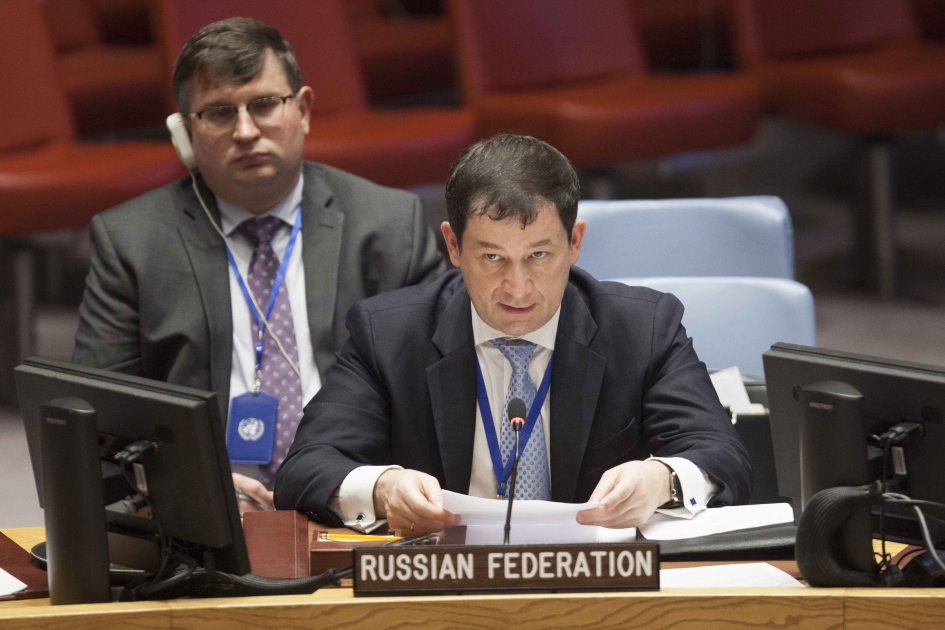Statement by Mr.Dmitry Polyanskiy, First Deputy Permanent Representative of the Russian Federation to the United Nations, at the Security Council on the sitiation in the South Sudan
We thank Under-Secretary-General JeanPierre Lacroix and Special Envoy Nicholas Haysom for the detailed information on the situation in South Sudan and the progress in the South Sudanese political settlement.
I would like to take this opportunity to thank Mr. Haysom for the work that he has done and congratulate him on his recent appointment. I wish him every success in his work at his new post. We also listened with interest to the briefings by Special Envoy Ismail Wais and Ms. Grace John.
The Russian Federation’s consistent position arises from the premise that a sustainable ceasefire and the launch of an inclusive process of national reconciliation are the key to stabilization in South Sudan. We therefore welcome the signing of the revitalized Peace Agreement by the parties to the conflict in South Sudan on 12 September.
We hope that the breakthrough nature of the agreements reached in Addis Ababa will not be questioned. We agree that they still require substantial detail, but that does not detract from their significance. It is important that the South Sudanese parties demonstrated their readiness to reach a compromise, as well as their desire to resolve their existing differences by peaceful means.
We pay tribute to the effective coordinated efforts of the Intergovernmental Authority on Development (IGAD), which enabled the successful completion of the South Sudanese Peace Agreement revitalization process. We note that regional actors painstakingly spent over a year bringing the positions of the parties together. It was indeed the countries of the region that were able to start the negotiation process from scratch at a time when South Sudan’s leaders could not even be seated at the same negotiating table. It was IGAD that forged ahead in its efforts when many of those in this very chamber had lost hope and written off the process of revitalization.
We note the unity demonstrated by the region’s leaders in their approach to the South Sudan settlement, and we call on them to maintain that approach in their continued support for the peace process. We also welcome the efforts of the guarantors to facilitate the implementation of the Peace Agreement by providing national contingents from the Sudan, Uganda, Djibouti and Somalia as part of the Regional Protection Force. We see this process as a practical manifestation of the principle of African solutions to African problems, as well as an opportunity for effective cooperation between the United Nations and the Security Council and regional organizations.
We are ready to consider substantive proposals by IGAD regarding the Regional Protection Force. We encourage South Sudanese politicians to show goodwill when implementing the revised Agreement. Despite clear positive trends, we also note calls for broadening sanctions on South Sudan, including in this Chamber. I would therefore once again like to recall our position on that issue.
As before, we think that excessive pressure applied through sanctions might entrench the positions of the South Sudanese parties and may give them the wrong signals. The result might be the reverse of what is desired, with the parties turning to a military solution rather than a negotiation process. That would certainly make it more difficult to achieve a peace settlement. Finally, in principle, we do not accept a situation where attempts are made to use the sanctions regime of the Security Council as a substitute for serious political and diplomatic work.
